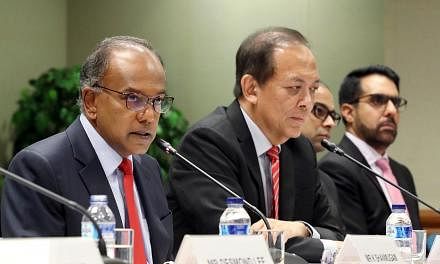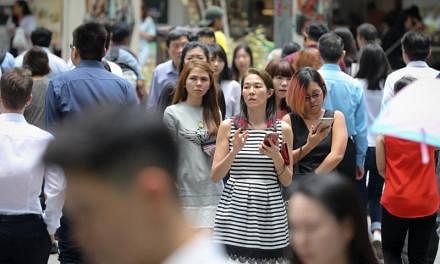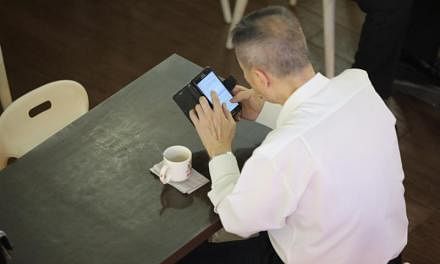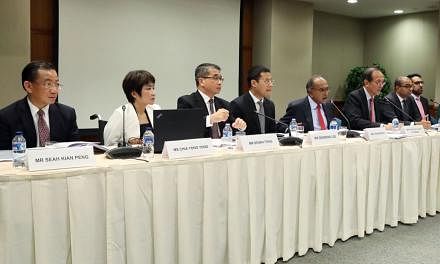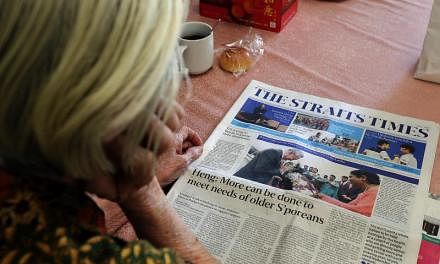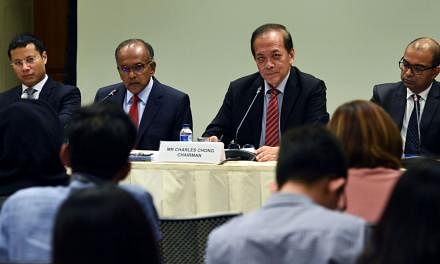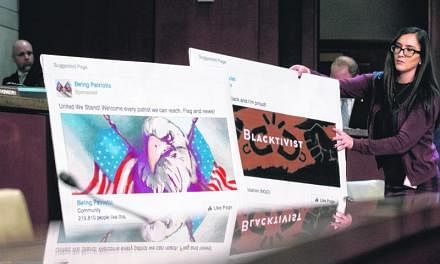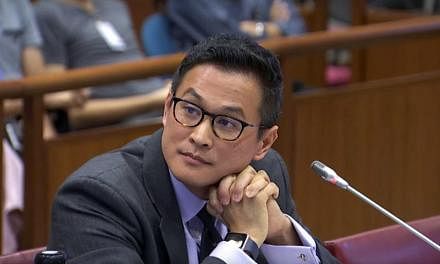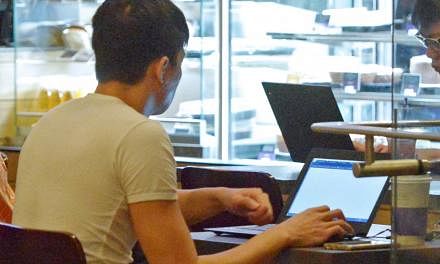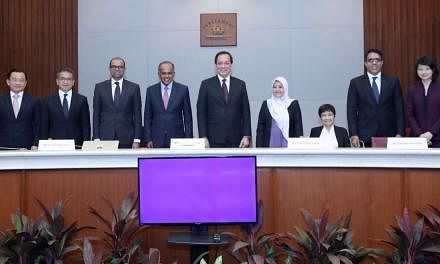SINGAPORE - The Select Committee tasked to study the issue of fake news said on Thursday (Sept 20) that historian Thum Ping Tjin lied about his academic credentials to suggest that he held more distinguished roles than he really did.
In an addendum to its report, it also noted that Dr Thum had admitted during public hearings in March that his research on the historical circumstances surrounding the 1963 Operation Coldstore was flawed, as he had made misleading presentations of historical documents, disregarded important historical accounts and did not explain in his publications why the accounts should be disregarded.
When the Select Committee was seeking public views early this year on the issue of deliberate online falsehoods, Dr Thum had written in, saying that fake news had not had much of an impact in Singapore, save for one major exception: Operation Coldstore, where more than 100 leftist politicians and unionists were arrested and detained.
Dr Thum argued in his submission that the People's Action Party had used fake news in that 1963 operation to detain political opponents.
The Select Committee then invited him to give evidence at the public hearings it held in March.
In the addendum to its report following those hearings, the committee said Dr Thum referred to himself as a research fellow in history at Oxford University both in his written submission and when he first introduced himself at the hearings.
When questioned during the hearings, he said he had switched to anthropology, and held a visiting professorship in anthropology, the committee added.
It said the Parliament Secretariat, when looking to clarify Dr Thum's academic positions, also found that he had subsequently described himself online as a visiting research fellow in history within the department of anthropology.
However, the committee said, Dr Thum never held the position of a research fellow in history at Oxford University.
"Oxford University confirmed that Dr Thum was not, and never was, an employee of Oxford University. He was a visiting fellow with the Fertility and Reproduction Studies Group in the School of Anthropology," it said.
"Prior to that, he was a visiting scholar (not a research fellow) at the Oxford Centre for Global History, which was another unpaid position."
Documents provided by Dr Thum showed that he had various visiting scholar arrangements with Oxford University, and was given certain privileges in return for him paying a fee to the university, the committee said.
It added: "Those visiting arrangements are different from the picture that Dr Thum sought to paint with his claims to be a 'research fellow in history' and the holder of a 'visiting professorship' - a picture that he held an academic position of some seniority with Oxford University."
The Select Committee also noted that when presented with statements by historical figures such as Communist Party of Malaya chief Chin Peng, Dr Thum acknowledged that they contradicted his research paper's position that there was no evidence of communist involvement in the progressive left in Singapore in the 1960s.
Dr Thum also admitted that he had not read the writings of some Communist Party members and disregarded others which he considered unreliable, the committee said.
And when presented with declassified British documents that he had examined for a paper he had cited in his written submission, he admitted that his presentation of these British documents, which were essential documents on which Operation Coldstore was decided upon, was misleading.
During the hearing, Dr Thum agreed to come back to the committee with two documents. The committee said he submitted only one.
Speaking at a media briefing on the committee's report on Thursday, Law Minister and Select Committee member K. Shanmugam said: "Since his perspective was unique, we thought we would set out what we thought of his representation, because the committee concluded that he lied about his academic credentials or academic positions and that in his representations he was not credible."
The committee also included in its addendum an outline of events that happened after the hearings.
In early April, an open letter addressed to the committee's chairman Charles Chong was circulated online, with signatures from academics from different countries.
Among other things, it expressed "deep concern" at the committee's questioning of Dr Thum, and its wider implications for freedom of expression and academic freedom in Singapore and sought a full apology from the committee to Dr Thum.
Later that same month, the trustees of Project South-east Asia issueda statement on their website in support of Dr Thum, who is one of its coordinators and trustees.
The committee said it found that both the open letter and statement by the trustees of Project South-east Asia, "which cast aspersions on the Committee's process, were based on wrong facts and premises".
It added: "The committee notes that both documents had been circulated internationally and the latter document, at the very least, had arisen from active lobbying by Dr Thum's business partner and fellow activist, Dr Philip Kreager. Dr Thum himself had also been closely involved in the process."
In the addendum, the committee also outlined the exchanges it had with two non-governmental organisations: Human Rights Watch and Reporters Without Borders.
It invited both organisations to send representatives to give oral evidence at the public hearings but they declined.
Mr Shanmugam said: "We thought that we should set out in the report what happened, and that the committee thought that their excuses for not turning up were contrived."
Human Rights Watch had initially accepted the invitation, but later informed the committee its representative had made travel plans that "could not be changed".
The committee offered the option of a video conference call, but Human Rights Watch did not take it up.
Reporters Without Borders also expressed interest initially in giving oral evidence, but eventually declined to attend, citing "organisational reasons".
The committee offered the same option of a video conference call, but the organisation did not respond.


